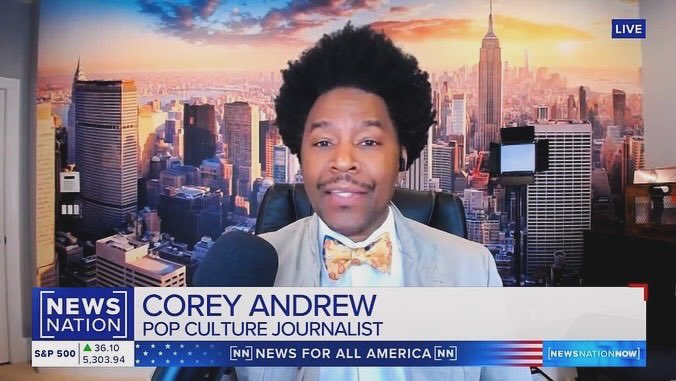Joy Reid Says Voters’ Choice Is Steak or Poo
Artist Who Darkened O.J.’s Face Cites Naivete
Why the Light Penalty for Trooper Who Killed?
MTV Library Shuttered, Including Hip-Hop Archives
Sewell Chan to Edit Columbia Journalism Review
IRE Honors Stories on Threats to Black Enclaves
Story of Enslaved Potter Wins a Top Features Award
Poll: Most Americans Approve of Diversity Programs
Plan: ‘Destruction of Press Infrastruture’ in Gaza
Short Takes: Associated Press local news efforts; LA Taco recovery; Justice Dept. and police-press interactions; Rush Limbaugh producer James Golden; Denisha Thomas; diversity in advertising industry; disappearance of Mali journalist; assault in Ghana; threat in Bolivia.
Homepage photo: Corey Andrews of NewsNation posted this photo on X, captioning, “Me, showing up to my ‘Black Job.’ “
Support Journal-ismsDonations are tax-deductible.
Donald Trump said in Thursday’s debate that migrants are “taking Black jobs, and they’re taking Hispanic jobs, and you haven’t seen it yet, but you’re gonna see something that’s going to be the worst in our history.” (Credit: KHOU, Houston/YouTube)
Joy Reid Says Voters’ Choice Is Steak or Poo
Black news purveyors on social media and off seized on a reference to “Black jobs” by former President Donald Trump at Thursday’s debate between Trump and President Biden, ridiculing the concept and saying they were insulted by it.
Some Latinos and Asian Americans also focused on the “jobs” exchange, in which Trump demonized immigrants.
“As America watched the first presidential debate Thursday night, some observers said President Joe Biden’s performance failed the vibe check and former President Donald Trump kept lying,” Capital B and PolitiFact wrote Friday on the Capital B site.
“But what really raised eyebrows was Trump’s response when asked about the candidates’ appeal to Black voters.
“ ‘The fact is that his big kill on the Black people is the millions of people that he’s allowed to come in through the border,’ the former president said. ‘They’re taking Black jobs now and it could be 18, it could be 19 and even 20 million people. They’re taking Black jobs, and they’re taking Hispanic jobs, and you haven’t seen it yet, but you’re gonna see something that’s going to be the worst in our history.’
“The NAACP asked a simple question on X: ‘What exactly are Black and Hispanic Jobs!?!’
“And #BlackJob was quickly trending. . . .”
” ‘Hello From My Black Job’ ” headlined Essence.com. “Social Media Claps Back At Trump’s Debate Comment With Black Excellence
“From colleges to Capitol Hill, law offices, doctor’s offices, and beyond, Black people rebuffed Trump’s foolish assumption by highlighting Black excellence.”

A physician. An astronaut. And a fighter pilot.
Reporting live from our #blackjobs pic.twitter.com/4tnxpQbwZT
— Alister Martin (@AlisterFMartin) June 28, 2024
But the exchange was no laughing matter elsewhere.
A dozen Latino and immigrant rights organizations that spoke to NBC News “expressed disappointment over a debate that deviated from any meaningful solutions and sparked fear over the future of immigration policy,” Nicole Acevedo, Didi Martinez and Daniella Silva wrote for NBC News.
At AsAmNews, targeting Asian Americans, Lauren Shin cited a piece in Forbes by Stuart Anderson of the National Foundation on American Policy that explained that “in his first term, Trump’s administration implemented stricter criteria for H-1B visas, which were crucial for many Asian American professionals. These changes included higher scrutiny of visa applications and increased denial rates, impacting the ability of Asian Americans to work and stay in the U.S.
“Trump’s previous attempts to end the Deferred Action for Childhood Arrivals (DACA) program further create uncertainty for Asian immigrants who arrived in the U.S. as children. Although the Supreme Court blocked the immediate termination of DACA, the ongoing legal battles have left many in limbo regarding their future in the country.”
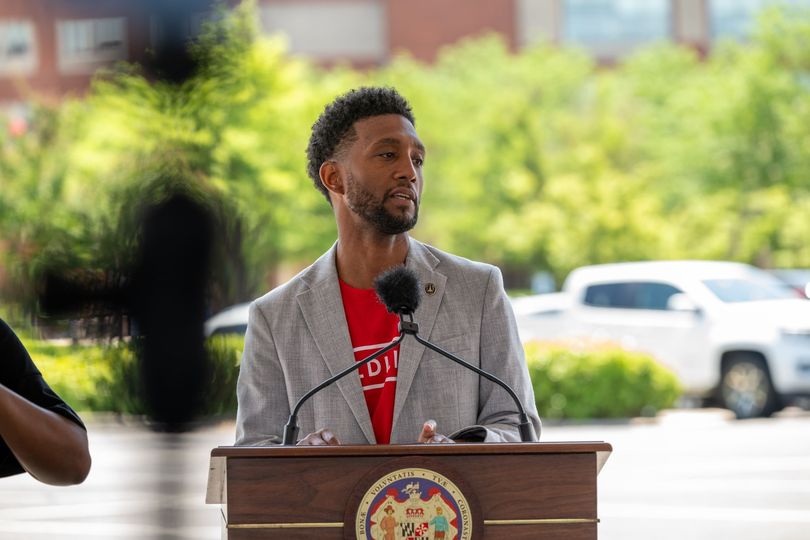
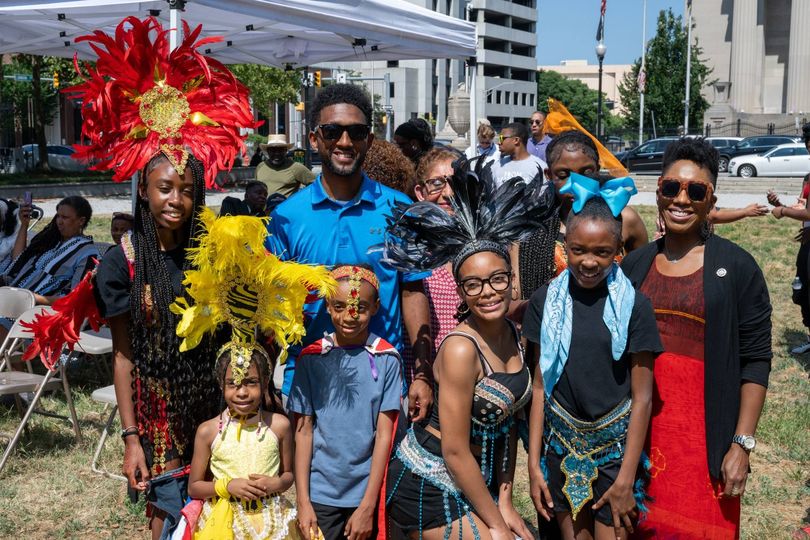
Mayor Brandon Scott of Baltimore posted a series of photos of his day on X, writing, “I had a great day at my BLACK job today! Or is it my DEI job? I can’t keep up with the latest racist term. Nevertheless, it was a great day across Baltimore. #BlackJob”
Black commentators were not as eager as some others to urge Biden to step aside after his poor debate performance.
“It’s literally, you go to a dinner and your choices are steak or a pile of poo,” Joy Reid said Friday on her MSNBC show, “The ReidOut. “This is not a difficult choice. Pick the steak! For the love of God!”
However, on debate night, Democratic analyst Van Jones delivered a soliloquy on CNN “brimming with emotion, full of poignancy, defiance and regret,” Michael M. Grynbaum wrote for The New York Times.
“ ‘I just want to speak from my heart,’ Mr. Jones said, minutes after the debate ended, as he and his fellow panelists marveled at the disastrous nature of Mr. Biden’s showing. ‘He’s a good man. He loves his country. He’s doing the best that he can. But he had a test to meet tonight to restore the confidence of the country and of the base, and he failed to do that.’ ”
“Mr. Jones paused. ‘There is time for this party to figure out a different way forward.’ ”
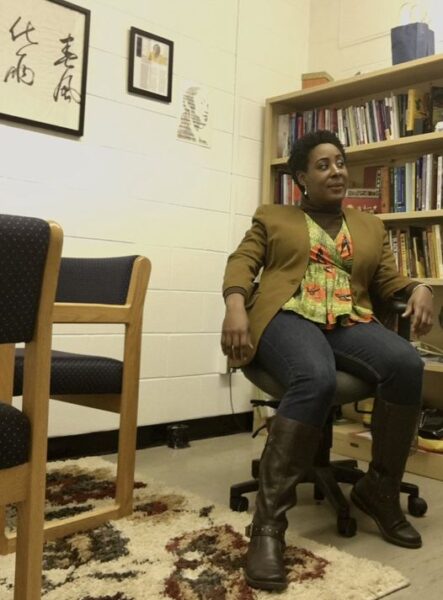
My #BlackJob is professor. What’s yours? pic.twitter.com/GJaPX36Wyz
— Uju Anya (@UjuAnya) June 28, 2024
Capital B, a nonprofit startup which is receiving this year’s “Best Practices” award from the National Association of Black Journalists, supplied a brief analysis of each candidate’s remarks under the headline, “Fact Check: What Have Biden and Trump Done for Black People?”
CNN moderators Jack Tapper and Dana Bash were criticized for not fact-checking the candidates, but CNN said that was the job of Biden and Trump.
(Ruth Ben-Ghiat of New York University, an expert on authoritarianism, said on MSNBC:
(“Trump came there for a totally different purpose, an authoritarian purpose — to spew as much propaganda as many lies as possible….and he got a lot in so he could indoctrinate people to his fake reality.”
(“So, Biden was placed in a very difficult position because there was no live fact checking and we know from studying propaganda, you’ve got to have instant refutation.”)
On debate night, the Philadelphia Inquirer asked its Opinion writers to rank the candidates on a scale of 1 to 10. “A 1 means the candidate was a complete disappointment, while a 10 is an unquestionable win. Here’s what our columnists, editorial writers, and contributors thought about the debate.”
Biden’s average score was 3.71; Trump’s 3.43.
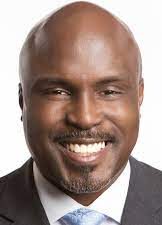 Here are responses from contributing columnist Solomon Jones (pictured) and staff columnist Helen Ubiñas (pictured, below), for those who cannot breach the Inquirer paywall:
Here are responses from contributing columnist Solomon Jones (pictured) and staff columnist Helen Ubiñas (pictured, below), for those who cannot breach the Inquirer paywall:
On Biden:
Jones
“Joe Biden stumbled several times and missed opportunities to counter some of Trump’s patently false statements. Though his voice was barely audible at times, he spoke most passionately when he talked about America’s strengths, potential, and position in the world. He was effective when he talked about his policies, but his best lines were about Trump. He rightly pointed out that Trump is a convicted felon, challenged the moderators to compare what Trump is compared to what he says he is, and after enumerating some of Trump’s civil suits, he proclaimed that Trump has the morals of an alley cat. Best line of a humdrum debate performance. (6/10)”
Ubiñas
 “Anyone who says this was a good performance by Biden would be lying — he was hoarse, he stumbled, he rambled, even over some of his most important points. It was, at times, painful to watch. But he (mostly) told the truth. The bigger truth beyond this hot mess of a debate is that we cannot give a wannabe dictator a second shot to destroy our democracy. Period. (5/10)”
“Anyone who says this was a good performance by Biden would be lying — he was hoarse, he stumbled, he rambled, even over some of his most important points. It was, at times, painful to watch. But he (mostly) told the truth. The bigger truth beyond this hot mess of a debate is that we cannot give a wannabe dictator a second shot to destroy our democracy. Period. (5/10)”
On Trump:
Jones
“Trump spoke strongly and with conviction, but much of what he said was either false or hyperbole. He said Biden was destroying every entitlement program from Medicare to Social Security. He said Biden was the worst president in the history of the country. And even as we watch wars raging in other places, Trump said that America’s southern border is the most dangerous place in the world. Trump is a great performer, but I left the debate feeling like he needs new material. No matter the question, his answer was the border. The only exception was the question about whether he would accept the election results and renounce political violence. He didn’t clearly answer that, and it was chilling. (6/10)”
Ubiñas
“No. 45 lied, and lied, and lied (so he doesn’t even deserve the 1-point grade I’m giving him here), and only seemed to get more energized and empowered as the CNN moderators committed journalistic malpractice by failing to fact check him on anything. He couldn’t even answer a yes-or-no question about whether he’d accept the results of the presidential election. He is unhinged and unfit to be president again — and that should not be up for debate. (1/10).”
Similarly, the Boston Globe asked six of its columnists to weigh in:
“On abortion, Biden missed a layup
“By Kimberly Atkins Stohr
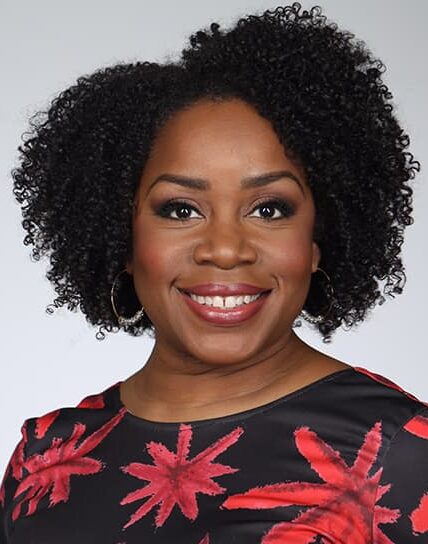 “The topic of abortion should have been a layup for President Biden: Women in red states are being airlifted out of their states to get emergency abortion care; maternal mortality rates have soared; and basic reproductive rights and health care, from IVF treatments to contraception, are at risk. All because of Donald Trump’s three Supreme Court nominees who voted to overturn Roe v. Wade. Meanwhile, conservatives supporting Trump have promised to use an archaic federal law to all but ban abortions nationwide.
“The topic of abortion should have been a layup for President Biden: Women in red states are being airlifted out of their states to get emergency abortion care; maternal mortality rates have soared; and basic reproductive rights and health care, from IVF treatments to contraception, are at risk. All because of Donald Trump’s three Supreme Court nominees who voted to overturn Roe v. Wade. Meanwhile, conservatives supporting Trump have promised to use an archaic federal law to all but ban abortions nationwide.
“Trump gave Biden plenty of openings to wipe the floor with him. The former president claimed all conflict over abortion was resolved by reversing Roe and returning the issue to states, when in fact it allowed states to ban or severely restrict the procedure. And then he lied about Democrats supporting after-birth abortion. But Biden lost the point by starting off by saying the ‘vast majority of constitutional scholars’ supported Roe, and he never made the case of the urgent peril caused by Roe’s demise. This was a badly blown opportunity on an issue Democrats have been hoping will help them win closely contested states.”
“Democracy was supposed to be more than just a campaign slogan
“By Renée Graham
 “President Biden has made democracy — and the risks that a second Donald Trump presidency would pose to it — a cornerstone of his campaign. But in this crucial debate he failed to forcefully drive home that point when asked if those who vote for Trump are voting against democracy.
“President Biden has made democracy — and the risks that a second Donald Trump presidency would pose to it — a cornerstone of his campaign. But in this crucial debate he failed to forcefully drive home that point when asked if those who vote for Trump are voting against democracy.
“Biden and his surrogates constantly say ‘democracy is on the ballot.’ But instead of using Trump’s own words to indict the former president as a clear and present danger to this nation’s founding principle, Biden talked about the deadly white supremacist rally in Charlottesville, Va., in 2017, and Trump’s perceived defense of neo-Nazis.
“This was Biden’s opportunity to make his concerns about the state of American democracy more than a campaign slogan. But like too many other times in this debate, the man inexplicably did not meet the moment.”
The debate was preceded by a dispute over access for Black-owned media. Kianga Moore had reported for Ebony, “Notable Black media organizations, including EBONY, Atlanta Black Star and Atlanta Voice, have reported being denied press credentials or not being informed of the application deadlines.” CNN replied, “Unfortunately, due to size and security constraints, we are unable to accommodate additional credential requests following our June 7 application deadline, which came in only in the last few days.”
Donnell Suggs, editor in chief of the Atlanta Voice, told Journal-isms on Saturday that he was able to cover the debate anyway. “I was a part of the presidential press pool on Thursday and covered the debate from that perspective. We were also inside CNN midtown HQ during the debate as well,” he messaged.
“The White House’s communications team invited me to cover the debate. I’ve built a relationship with them by covering both President Biden and VP Harris the past three years. CNN DID NOT invite me or The Atlanta Voice. The only ‘Black’ media entity that was invited was The Grio.”
The Grio’s April D. Ryan, who provided coverage of the debate (video) tweeted Thursday, “SCOOP:
@thegrio was credentialed for the @CNN debate but declined our press passes because we have devoted all our resources to our Presidential Debate Coverage on GRIO TV tonight.
@theGrio covers the White House daily with two dedicated reporters. THIS IS FOR THE FOLKS WHO KEEP ASKING.”
- Zeeshan Aleem, MSNBC: It sure looks like Trump is more for sale than ever before
- Lorraine Ali, Los Angeles Times: Racism and bigotry get a pass in 2024 as Trump talk that once shocked is normalized
- Perry Bacon Jr., Washington Post: Centrist politics are failing in the U.S. and Europe
- Abha Bhattarai, Washington Post: Trump says immigrants are taking ‘Black jobs.’ Economists disagree.
- BlackAmericaWeb.com: What’s a ‘Black Job’? Social Media Reacts to Trump’s Presidential Debate Remarks
- Hayes Brown, MSNBC: Biden still has a chance to off-set his disappointing debate performance
- Stacy M. Brown, National Newspaper Publishers Association: CNN Faces Backlash for Excluding Black-Owned Media from Presidential Debate Coverage
- Stacy M. Brown, National Newspaper Publishers Association: CNN’s Shameful Spectacle: The First Presidential Debate of 2024
- Nyamekye Daniel, Atlanta Black Star: ‘Disrespectful’: CNN Excludes Black American Media from 2024 President Debate In Atlanta But Approved Credentials for Reporters from Other Countries
- Michael M. Grynbaum, New York Times: 51.3 Million Viewers Tuned In for Shaky Biden and Boisterous Trump
- Emil Guillermo, Asian American Legal Defense and Education Fund: Post-debate, who needs to make the tougher choice–voters or Joe Biden?
- Craig Harrington, Media Matters for America: Trump recycles Fox-inspired lie that undocumented immigrants are destroying Social Security and Medicare
- Jon Lafayette, Broadcasting & Cable: 48 Million Watched CNN’s Biden-Trump Debate
- Candace McDuffie, TheRoot: 13 Black Twitter Responses to the Trump-Biden Presidential Debate
- Noah A. McGee, The Root: What the Hell is a ‘Black Job?’ Black Twitter Goes Off on Trump’s Comment During Debate With Biden
- Sophia A. Nelson, Atlanta Journal-Constitution: Kamala Harris was the unexpected winner of Thursday’s presidential debate
- A.R. Shaw, Atlanta Daily World: President Biden Should Not Step Down Following Debate Struggles, But Democrats Must Form A Dream Team To Save The Campaign
- Isaiah Singleton, Atlanta Voice: Presidential debate watch party shows support for POTUS Biden
- Rob Tornoe, Editor & Publisher: Journalists struggle to cover election amid rising anti-democratic rhetoric
- The Vanguard, Nigeria: ‘Worst debate ever,’ Davido reacts to 2024 US presidential debate
- Alyssa Vega, Boston Globe: Trump claims immigrants are taking over ‘Black Jobs.’ Here’s what Black voters have to say.
- Alex Weprin, Hollywood Reporter: With CNN Debate Hours Away, Multiple News Outlets Are Still Seeking More Access
- Rob Wile and Char Adams, NBC News: ‘Black jobs’? Trump draws pushback after anti-immigration rant
Artist Who Darkened O.J.’s Face Cites Naivete
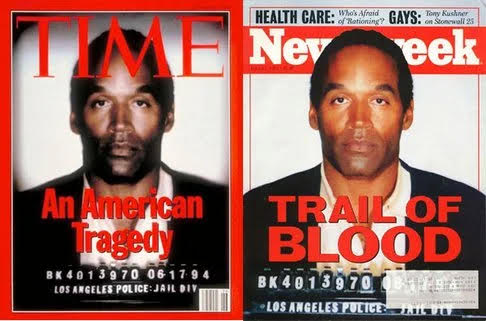 The artist who drew the infamous 1994 Time magazine cover with a darkened face of O.J. Simpson says that his doing so “resulted from the combination of never having to endure racism personally, as well as being raised in a non-racist home. It was this combination of a respectful upbringing and a respected professional reputation that I had no idea something I created would be perceived as racist.”
The artist who drew the infamous 1994 Time magazine cover with a darkened face of O.J. Simpson says that his doing so “resulted from the combination of never having to endure racism personally, as well as being raised in a non-racist home. It was this combination of a respectful upbringing and a respected professional reputation that I had no idea something I created would be perceived as racist.”
 Matt Mahurin (pictured) wrote Tuesday in The Quill, publication of the Society of Professional Journalists, that he knew that his image would be competing with Newsweek’s, and that “Just as the director of a play will lower the lights during a dramatic moment, as a visual artist, I used shadow and light to portray the main character of this real-life drama.”
Matt Mahurin (pictured) wrote Tuesday in The Quill, publication of the Society of Professional Journalists, that he knew that his image would be competing with Newsweek’s, and that “Just as the director of a play will lower the lights during a dramatic moment, as a visual artist, I used shadow and light to portray the main character of this real-life drama.”
Mahurin added, “The moral of my story was I must do all I can to see beyond the limitations of my own experience.”
The article is an excerpt from “The Imagemaker’s Handbook,” Mahurin’ss five-volume exploration of life as a professional artist, due this fall.
Simpson, who died this past April, was then facing criminal charges in the 1994 slayings of his ex-wife, Nicole Brown Simpson, and her friend, Ronald L. Goldman. He was acquitted, but in 1997 was convicted of civil charges.
Dorothy Gilliam, then president of the National Association of Black Journalists, said at the time, the “question that must be asked is how does darkening and shadowing this photograph serve the reader?” Wayne Dawkins reported in his 2003 book, “Rugged Waters: Black Journalists Swim the Mainstream.”
Gilliam continued, “Tampering with a photograph in a criminal case is even more serious. The cover appears to be a conscious effort to sway the opinion of the reader to becoming fixated on his guilt.”
Time’s art director, Arthur Hochstein, said then, “There was no conscious intention to make O.J.’s skin appear darker than it is or make him look any guiltier than he may be.”
- Rod Hicks, the Quill: Photo unrealism: Doctoring pics is becoming easier…and harder to detect (June 20)
Flynn Snyder of WTOC-TV in Savannah, Ga., reports on newly released dashcam footage of a deadly police shooting that sparked a federal investigation. WTOC talked with the sister of Julian Lewis, a Black man shot and killed by a Georgia state trooper in 2020. (Credit: WTOC/YouTube)
Why the Light Penalty for Trooper Who Killed?
“Julian Lewis didn’t pull over for the Georgia State Patrol cruiser flashing its blue lights behind him on a rural highway. He still didn’t stop after pointing a hand out the window and turning onto a darkened dirt road as the trooper sounded his siren,” Russ Bynum and Jim Mustian reported Tuesday for the Associated Press.
“Five minutes into a pursuit that began over a broken taillight, the 60-year-old Black man was dead — shot in the forehead by the white trooper who fired a single bullet mere seconds after forcing Lewis to crash into a ditch. Trooper Jake Thompson insisted he pulled the trigger as Lewis revved the engine of his Nissan Sentra and jerked his steering wheel as if trying to mow him down.
“ ‘I had to shoot this man,’ Thompson can be heard telling a supervisor on video recorded by his dash-mounted camera at the shooting scene in rural Screven County, midway between Savannah and Augusta. ‘And I’m just scared.’
“But new investigative details obtained by The Associated Press and the never-before-released dashcam video of the August 2020 shooting have raised fresh questions about how the trooper avoided prosecution with nothing more than a signed promise never to work in law enforcement again. Use-of-force experts who reviewed the footage for AP said the shooting appeared to be unjustified.
“An investigative file obtained by AP offers the most detailed account yet of the case, including documents that spell out why the Georgia Bureau of Investigation concluded the 27-year-old trooper’s version of events did not match the evidence. For instance, an inspection of Lewis’ car indicated the crash had disconnected the vehicle’s battery and rendered it immobile.
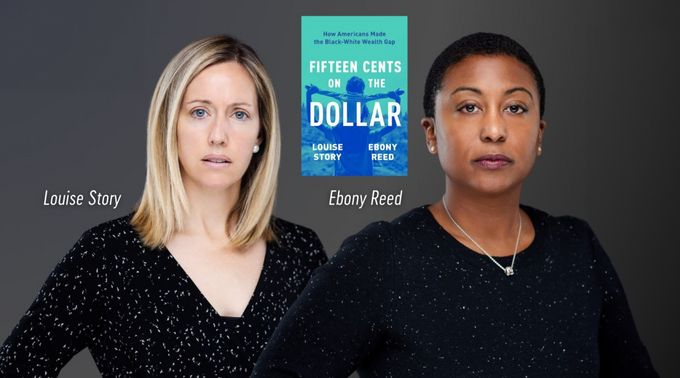 “Footage of the pursuit has never been made public. It was first obtained by the authors of a new book about race and economic inequality titled ‘Fifteen Cents on the Dollar: How Americans Made the Black-White Wealth Gap.’ Louise Story and Ebony Reed (pictured) shared the video with AP, which verified its authenticity and obtained additional documents under Georgia’s open-records law. . . .”
“Footage of the pursuit has never been made public. It was first obtained by the authors of a new book about race and economic inequality titled ‘Fifteen Cents on the Dollar: How Americans Made the Black-White Wealth Gap.’ Louise Story and Ebony Reed (pictured) shared the video with AP, which verified its authenticity and obtained additional documents under Georgia’s open-records law. . . .”
MTV Library Shuttered, Including Hip-Hop Archives
“ More than two decades’ worth of content published on MTVNews.com is no longer available after MTV appears to have fully pulled down the site and its related content,” Todd Spangler reported Monday for Variety. “Content on its sister site, CMT.com, seems to have met a similar fate.
More than two decades’ worth of content published on MTVNews.com is no longer available after MTV appears to have fully pulled down the site and its related content,” Todd Spangler reported Monday for Variety. “Content on its sister site, CMT.com, seems to have met a similar fate.
“In 2023, MTV News was shuttered amid the financial woes of parent company Paramount Global. As of Monday, trying to access MTV News articles on mtvnews.com or mtv.com/news resulted in visitors being redirected to the main MTV website.
“The now-unavailable content includes decades of music journalism comprising thousands of articles and interviews with countless major artists, dating back to the site’s launch in 1996. Perhaps the most significant loss is MTV News’ vast hip-hop-related archives, particularly its weekly ‘Mixtape Monday’ column, which ran for nearly a decade in the 2000s and 2010s and featured interviews, reviews and more with many artists, producers and others early in their careers. . . .”
Sewell Chan is interviewed last year as he is honored by the Museum of Chinese in America. (Credit: YouTube)
Sewell Chan to Edit Columbia Journalism Review
“Sewell Chan, the editor in chief of The Texas Tribune, will become the next executive editor of the Columbia Journalism Review,“ Katie Robertson reported Thursday for The New York Times.
“Mr. Chan, 46, has helmed The Tribune, a pioneering nonprofit newsroom, since October 2021. He will join CJR on Sept. 16, the publication announced on Thursday.
“CJR, which covers the media industry, has been published by the Columbia University Graduate School of Journalism since 1961. It now prints two magazines a year and runs a digital operation.
“ ‘It’s always been an intellectual leader in our field, especially on news ethics and decision-making,’ Mr. Chan told The New York Times. ‘I want CJR to be a voice for working journalists who face existential challenges — from hedge fund owners to authoritarian leaders to online harassment — and to explain to the public why fact-based news is more important than ever.’
“Mr. Chan fills a role left open by Kyle Pope, who was CJR’s editor from 2016 to 2023.
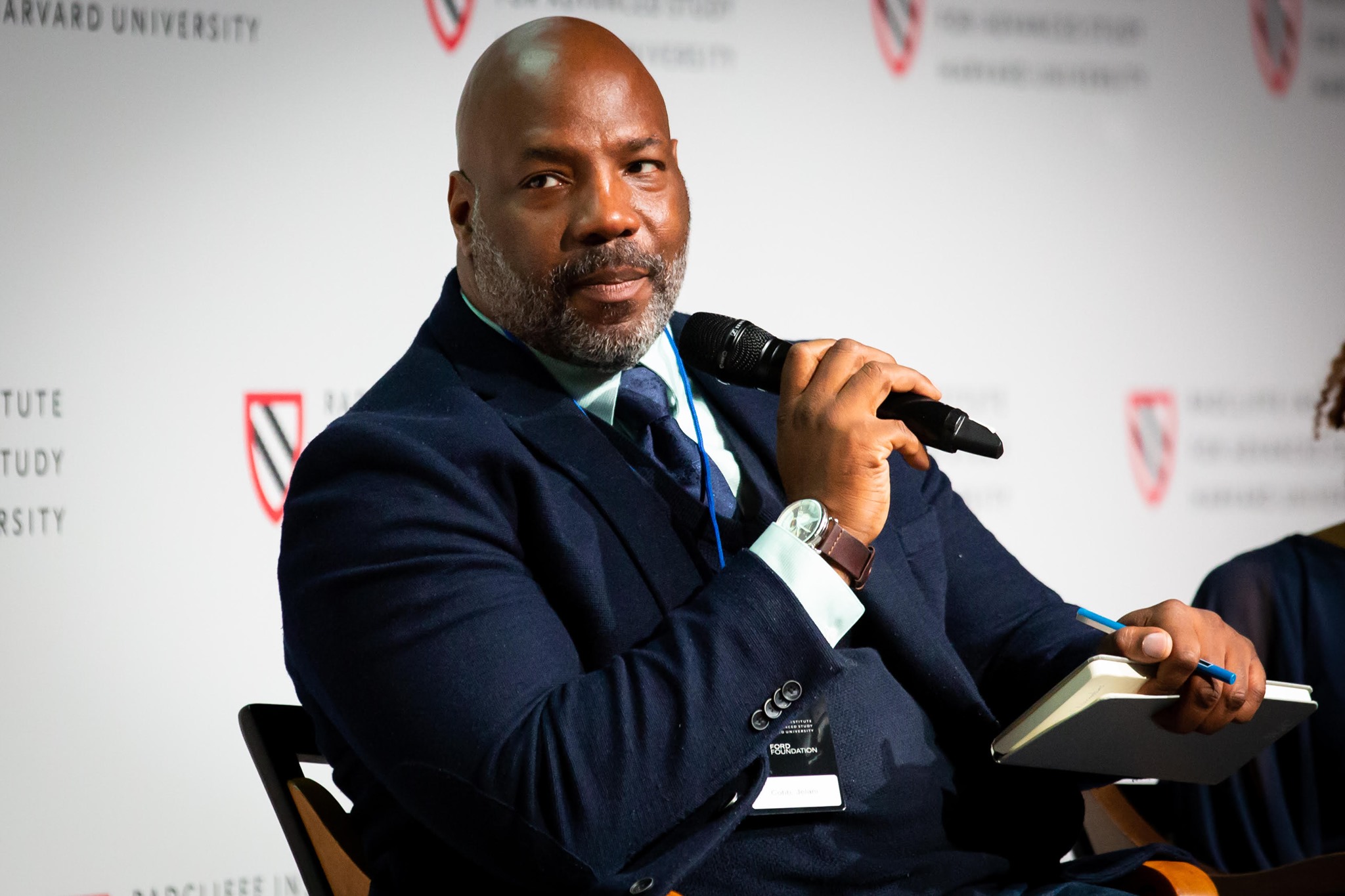 “Jelani Cobb (pictured), the dean of the Columbia Journalism School, said in an interview that Mr. Chan was ‘one of the smartest people I know in journalism and publishing right now.’
“Jelani Cobb (pictured), the dean of the Columbia Journalism School, said in an interview that Mr. Chan was ‘one of the smartest people I know in journalism and publishing right now.’
“ ‘We both had a sense that CJR really has to be more of a place where the problems that we’re confronting in journalism get worked on, the things that we’re trying to address,’ Dean Cobb said.
“ ‘We’ve needed a forum like this more — the questions that we have are beyond pressing,’ he added. . . . “
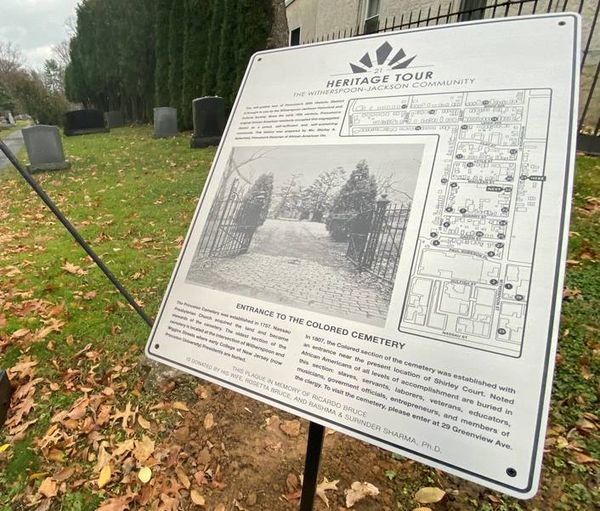
A historic plaque on the tour route through the Witherspoon-Jackson neighborhood in Princeton, N.J. (Credit: TAPinto Princeton)
IRE Honors Stories on Threats to Black Enclaves
A podcast on the slandering of a Black neighborhood in a Boston murder case and a student entry on how tax revaluations were wiping out a historic African American community in Princeton, N.J., were among winners in the annual awards bestowed by Investigative Reporters and Editors. IRE announced the awards in April and concluded its annual conference last week in Anaheim, Calif.
Honors also went to reports on abuses by law enforcement, including one to KXAS-TV in Dallas-Fort Worth that “relentlessly pursued public records and scoured social media about the training an Oath Keeper veteran was providing hundreds of Texas law enforcement officers: that their authority is above that of the U.S. Supreme Court and that county sheriffs are more powerful than the FBI. . . . Their work resulted in state investigations and policy changes.”
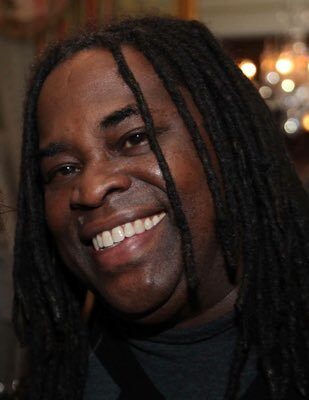 The “Murder in Boston” podcast, led by Boston Globe columnist Adrian Walker (pictured), “revealed shocking new information about the 1989 crime, uncovered powerful audio and turned its investigative attention to the experience of the people of Mission Hill, the African-American neighborhood that was slandered by Charles Stuart and subject to a campaign of abuse by the Boston police department in the months after Stuart murdered his wife and lied to the police saying “a black male” had shot her,” IRE judges said.
The “Murder in Boston” podcast, led by Boston Globe columnist Adrian Walker (pictured), “revealed shocking new information about the 1989 crime, uncovered powerful audio and turned its investigative attention to the experience of the people of Mission Hill, the African-American neighborhood that was slandered by Charles Stuart and subject to a campaign of abuse by the Boston police department in the months after Stuart murdered his wife and lied to the police saying “a black male” had shot her,” IRE judges said.
“That threadbare description was enough to drive Boston city government, the city’s white population and — crucially — the news media into a frenzy. In beautifully edited and finely crafted episodes, ‘Murder in Boston’ does more than excellent investigative work and powerful storytelling. It expands the range of what can be considered documentary texts, taking seriously the abuse suffered by the Black men and their families caught in Boston’s dragnet and positioning the sensational crime in the history of racism in Boston and beyond.
” ‘Murder in Boston’ turns its scrutiny not only on the police department and mayor’s office, but on the Globe itself and asks probing questions about why so many in the city and the newsroom were willing to run with Charles Stuart’s racist lie. It’s a fine work of investigative journalism in audio, but it is also more than the sum of its parts, a work of conscience, sociology and reckoning.” It won in the “Longform Journalism in Audio” category.
The Daily Princetonian won in the “Student – small” category for ” ‘Our Community Has Become a Commodity’: How Princeton’s Historically Black Community is Fading.”
“The Witherspoon-Jackson neighborhood has a long and important history for Princeton’s Black residents as an eight-block island segregated from the rest of the town,” Charlie Roth wrote on Nov. 10. “Black people settled in what is now the neighborhood in the 1700s and the area expanded throughout the 1800s and early 1900s. The community had its own YM/YWCA and library. Many of the buildings are still standing, including Mt. Pisgah AME Church built in 1860. . . .
“After combing through hundreds of pages of tax records for the Witherspoon-Jackson neighborhood from 2007 to 2010, a ‘Prince’ investigation found that after the 2010 revaluation, property taxes in the Witherspoon-Jackson neighborhood increased by over $1,700 on average, nearly a 25 percent increase from the previous year. This came after taxes increased by $80 between 2007 and 2008 and $445 between 2008 and 2009.”
Roth quoted Silas “Bud” Massey, Jr., who says he he can’t afford to retire. ” ‘Black people can’t live in Princeton no more,’ Massey told the ‘Prince.’ ‘Taxes too high. I don’t care what kind of job they get. Taxes too high for them.’ ”
- Investigative Reporters & Editors: 2024 IRE Board of Directors election and membership voting results
- Investigative Reporters & Editors: Georgia Department of Corrections wins 2024 Golden Padlock Award
Jim McDowell, a potter from Asheville, N.C., performs the story of Dave Drake, enslaved potter in the 1800s, for schoolchildren. (Credit: Kentucky Public Television/YouTube)
Story of Enslaved Potter Wins a Top Features Award
“In 1857, an enslaved potter in South Carolina’s Old Edgefield district carved a brief poem into a pot he’d turned in the mid-August heat,” Malcolm Gay wrote in March 2023 for the Boston Globe.
“The potter had been bought and sold by a series of owners by then. He’d lost a leg, but his gifted hands won him local renown: His expert work with clay ensured he would be kept in the district known for its stoneware, even as his family was torn from him at auction.
“Using a sharpened tool, he etched into the jar’s shoulder: ‘I wonder where is all my relation/Friendship to all — and every nation.’ The potter then added his enslaver’s initials, the date, and, finally, his own name: ‘Dave.’
“In that simple act, the man, long known as Dave the Potter, and later David Drake, was not only wondering about his lost family: He was committing an extraordinary act of defiance in pre-Civil War South Carolina, indelibly asserting his existence in an age that sought to obliterate the humanity of Black people.
“Perhaps most significantly: More than 150 years after Drake composed his mournful verse, researchers appear finally to have found his direct descendants.
“ ‘He was sending these messages,’ said Daisy Whitner, 84, whom genealogists have identified as Drake’s great-great-great-granddaughter. ‘He wanted people to know: I’m a human being; treat me as such.’ ”
Gay’s story won first place in the general feature category (1,000-2,499 words) among large-circulation and digital-only news outlets in the 2024 Society for Features Journalism’s Excellence-in-Features contest, announced Tuesday.
“Powerful story, beautifully written and researched,” the contest judge said. “This brings stunning history to light. What the museum does next should be watched.”
As Gay’s story reported, “Originally created to store meats and other foods, Drake’s 40 or so poem jars are today highly sought after by museums. His inscribed vessels routinely fetch six figures at auction, and his stoneware features prominently in ‘Hear Me Now: The Black Potters of Old Edgefield, South Carolina,’ an exhibition featuring enslaved potters’ work that opens this weekend at the Museum of Fine Arts” in Boston.
Gay also wrote: “The revelation has plunged the four siblings, along with their own numerous descendants, headlong into a disorienting world. There’s the sharp-elbowed debate over Drake’s life, legacy, and relationship with his enslavers. There’s the thorny question of how museums, which have long ignored the contributions of Black and enslaved people, should treat ‘artworks’ created by coerced labor — a question only sharpened by the pots’ vaulting auction values. Then there’s the family’s own curiosity and the ineffable emotion that comes with the discovery of an enslaved ancestor.”
Other winners included:
 Edgar Sandoval of The New York Times (pictured) in the “general feature” longform storytelling category, for “Two children, a burst of gunfire and the year that came after.” The contest judge called it a “heart wrenching look at Uvalde survivors one year after the mass shooting.”
Edgar Sandoval of The New York Times (pictured) in the “general feature” longform storytelling category, for “Two children, a burst of gunfire and the year that came after.” The contest judge called it a “heart wrenching look at Uvalde survivors one year after the mass shooting.”
 Daniel Hernandez, Los Angeles Times (pictured), for features beat specialty writing portfolio. “Take Daniel Hernandez’s three stories with you when you visit Mexico City,” the contest judge said. “All offer insight and expertise in an engaging way — delightfully written, vivid and detailed. The sights, smells and sounds echo through each paragraph.”
Daniel Hernandez, Los Angeles Times (pictured), for features beat specialty writing portfolio. “Take Daniel Hernandez’s three stories with you when you visit Mexico City,” the contest judge said. “All offer insight and expertise in an engaging way — delightfully written, vivid and detailed. The sights, smells and sounds echo through each paragraph.”
- The Washington Post staff in the special section category, “50 hip-hop artists share 50 songs they love.”
View this post on Instagram
- Amanda Joy Calhoun of The Emancipator in the “first-person narrative/essay” category for “A patient called me a racial slur. Unfortunately, my experience is universal.” The judge said, “This essay stands out for its powerful and raw portrayal of racism in medicine. It conveys the emotional and psychological impact of being subjected to racial slurs and the broader systemic issues within healthcare.”
 Jesús Rodríguez of The Washington Post (pictured) for his feature writing portfolio. His portfolio “stands out for his skilled reporting, storytelling and attention to incredible little details. The brilliant quotes sprinkled throughout the stories showcase his knack of asking the right questions and getting people to answer them,” a judge said.
Jesús Rodríguez of The Washington Post (pictured) for his feature writing portfolio. His portfolio “stands out for his skilled reporting, storytelling and attention to incredible little details. The brilliant quotes sprinkled throughout the stories showcase his knack of asking the right questions and getting people to answer them,” a judge said.
- “Justin Agrelo of Chicago Survivor Storytelling Network, thetrace.org, in the “Inclusion and Representation in Features” category. “The Trace’s ‘Chicago Shooting Survivors, In Their Own Words‘ is a shining example of how journalism can be a powerful force for empowering communities to tell their own stories. Rather than simply reporting on the impact of gun violence in Chicago, Justin Agrelo and The Trace team helped survivors develop their writing skills and gave them the platform to share their experiences in their own words.”
- Maurice Chammah, Dave Anderson and Tom Fuller of The Marshall Project in the “Podcast – Narrative” category” for “Smoke Screen: Just say you’re sorry.” The judge called it, “A masterful examination of an often overlooked problem of an unjust justice system. Part of the mastery is making us so invested in the villain, and why his genius is so controversial as well as compelling. Beyond that, this series carries the weight that could change real lives and impact future matters of police interrogation. Also, it’s damn entertaining. I couldn’t wait to get to the next episode. That’s a testament to the craft of this series.”
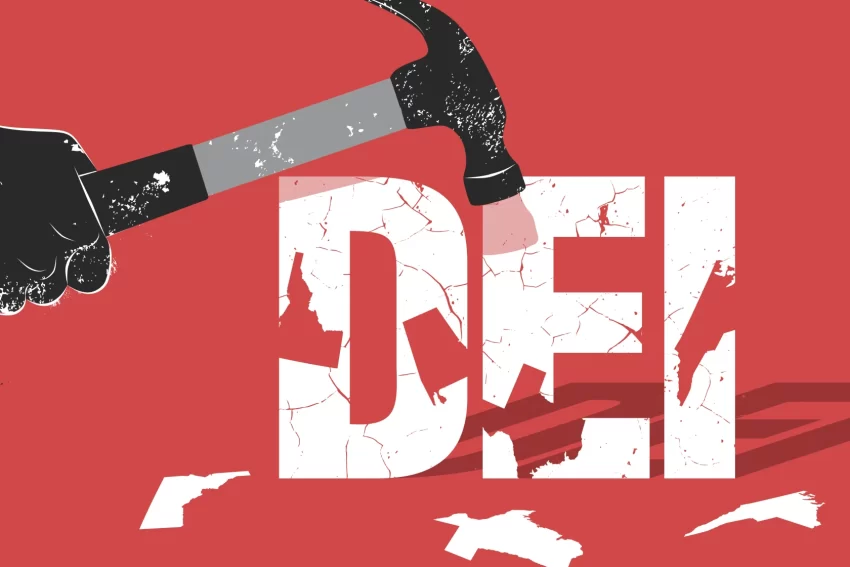
Illustration by Chronicle of Higher Education/ISTOCK
Poll: Most Americans Approve of Diversity Programs
Despite conservative attacks, “most Americans approve of companies taking steps to address the historic inequalities in their ranks, according to a poll from The Washington Post and Ipsos,” Taylor Telford, Emmanuel Felton and Emily Guskin wrote June 18 for the Post.
“Roughly 6 in 10 Americans said that diversity, equity and inclusion programs are ‘a good thing’ — and support was even higher for specific programs such as internships for underrepresented groups and anti-bias trainings. The level of support differed among racial groups, and one effort was universally unpopular: financial incentives for managers who achieve diversity goals.”
“The poll of 2,274 Americans, including 1,371 workers, highlights the disparity between the generally positive public perception of corporate DEI programs and their status as a political target at a moment when companies are quietly reassessing their policies and shifting their approaches to DEI with a focus on limiting legal risk. . . .”
At least two anti-DEI efforts targeting media outlets are in the courts.
A proposed class action lawsuit against the Gannett Co. by a white male journalist who claims “reverse discrimination” continues in federal court in Virginia.
In federal court in California, Brian Beneker, longtime script coordinator on the CBS show “SEAL Team, sued CBS in February, arguing that he had been repeatedly passed over for writing jobs because he is a straight, white man.
- LZ Granderson, Los Angeles Times: Overcoming America’s past is everyone’s responsibility
- Maggie Hicks, Chronicle of Higher Education: The New Anti-DEI Bureaucracy (June 21)
- Journal-isms: “Racial Preferences” Still a Pejorative Term (scroll down) (Oct. 3, 2012)
- Julian Mark and Susan Svrluga, Washington Post: Race was once factored into college admissions. Now, it’s factored out.
- Phillip Martin, GBH News, Boston: Right-wing activists are targeting Black scholars, and the scholars are pushing back
- Jeffrey Adam Sachs, Jeremy C. Young, PEN America: Jawboning: When Educational Censors Don’t Bother Passing a Law
- Sara Weissman, Inside Higher Ed: No-Confidence Votes for College Leaders Who Hid Negative DEI Report
- Peter Whoriskey and Julian Mark, Washington Post: DEI programs toppled amid a surge of conservative lawsuits
A mini-documentary from Reporters Without Borders, “Covering the war from Gaza: journalists who survived testify for RSF,” is made from meetings with some of the evacuated journalists from Gaza to Doha, Qatar. Wael al-Dahdouh, Agence France Press photojournalist Mahmoud Hams, RSF correspondent Ola al-Zaanoon, and her son, freelance reporter Moussa al-Zaanoon describe the risks they ran to keep reporting the news as Gaza continued to be completely closed. (Credit: RSF/YouTube)
Plan: ‘Destruction of Press Infrastruture’ in Gaza
“Only Gazan journalists can report on what is happening in the Gaza Strip,” Léa Peruchon reported Tuesday for Forbidden Stories, “an international network of journalists whose mission, unique in the world, is to continue the investigations of other reporters who have been silenced.”
“They struggle daily to survive and find places to take refuge. In many cases, their places of work no longer exist. According to the Palestinian Journalists’ Syndicate (PJS), around 70 press organizations, including local radio stations, news agencies, transmission towers, and journalist training institutes, have been partially or completely destroyed since the start of the war.
“Forbidden Stories has carried out this investigation in collaboration with AFP [Agence France-Presse], Arab Reporters for Investigative Journalism, Le Monde, Paper Trail Media and other international media outlets as part of the Gaza Project. Supported by the analyses of experts in ballistics and audio, it illustrates one of the many strategies used by the Israeli military to stifle information in Gaza: the destruction of press infrastructure.
Its key findings:
- “Forbidden Stories and its partners have demonstrated that the tower housing the AFP’s offices in Gaza was the target of two direct strikes on November 2, 2023 – despite assurances from the Israeli military that it had classified AFP premises as ‘not to be targeted.’
- “The same day, the premises of the Palestinian Media Group, a production company that broadcast live images from the Gaza Strip, were also targeted by the Israeli military. A journalist was injured in the attack.
- “The Press House, a sanctuary for Gazan journalists, was destroyed last February by the Israeli military. Its director was killed by shrapnel while trying to flee to the south of the Gaza Strip with his family.”
- Harry Davies, Manisha Ganguly, David Pegg, Hoda Osman, Yuval Abraham and Bethan McKernan, The Guardian: ‘The grey zone’: how IDF views some journalists in Gaza as legitimate targets
Short Takes
- “The Associated Press is launching an independent sister organization to raise at least $100 million to expand state and local news, its CEO Daisy Veerasingham told Axios,” Sara Fischer reported Tuesday for Axios. “Why it matters: The new group, a 501(c)3 charitable organization, allows the AP to raise philanthropic funds to support its local news efforts, which it can’t do as a not-for-profit organization. . . .”
- In April, LA Taco, the publication that “centers food coverage while covering working class communities across Southern California,” in the words of Gustavo Arellano, Los Angeles Times columnist, announced it was furloughing its entire team (“Short Takes”). Now it’s coming back, Amaris Castillo reported Tuesday for the Poynter Institute. “Staffers turned to social media to ask for the community’s support. The drive worked. “I think within like 24 hours, we had gained enough members and support, donations, merch sales, to bring everyone back,” investigative reporter Lexis-Olivier Ray said. Multimedia journalist Janette Villafana said it felt like a big hug from the community.
- The Justice Department’s Office of Community Oriented Policing Services, or “COPS,” “has been working on a set of high-level national best practices for police-press interactions at protests,” Gabe Rottman reported Tuesday for the Reporters Committee for Freedom of the Press. The “through line in the Louisville, Minneapolis, and now Phoenix pattern-or-practice reports” from the Department’s Office of Civil Rights “is the basic principle that officers may lawfully use force against individuals engaged in unlawful activity, but it must be tailored to address that specific activity, and that tailoring means that peaceful protesters must be protected and that journalists may have a right to remain on the scene and report.”
- “
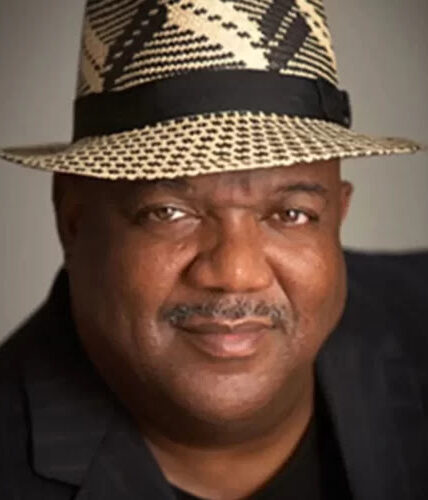 Red Apple Audio Networks has syndicated The James Golden Show, hosted by James Golden (pictured), on Saturday mornings,” Radio Ink reported Tuesday. “Golden, also known on-air as Bo Snerdley, worked with the late Rush Limbaugh for almost thirty years as a producer . . .”.
Red Apple Audio Networks has syndicated The James Golden Show, hosted by James Golden (pictured), on Saturday mornings,” Radio Ink reported Tuesday. “Golden, also known on-air as Bo Snerdley, worked with the late Rush Limbaugh for almost thirty years as a producer . . .”.
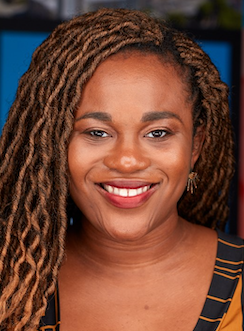 “Tegna NBC affiliate WXIA Atlanta today appointed Denisha Thomas (pictured) news director,” TVNewsCheck reported Tuesday. “She will start her new role on July 22 and report to Carol Fowler, 11Alive’s director of content. Thomas is currently news director of Tegna’s WATN Memphis and has the distinction of being first Black woman to lead a newsroom in that city. Since joining WATN in 2020, she’s launched strategic efforts to reach more Memphians through solutions-focused storytelling about the region’s challenges and increasing digital and social media news content. . . .”
“Tegna NBC affiliate WXIA Atlanta today appointed Denisha Thomas (pictured) news director,” TVNewsCheck reported Tuesday. “She will start her new role on July 22 and report to Carol Fowler, 11Alive’s director of content. Thomas is currently news director of Tegna’s WATN Memphis and has the distinction of being first Black woman to lead a newsroom in that city. Since joining WATN in 2020, she’s launched strategic efforts to reach more Memphians through solutions-focused storytelling about the region’s challenges and increasing digital and social media news content. . . .”
- “Despite all it has going for it, the advertising industry remains one of the least diverse sectors in the city,” reports the New York-based think tank Center for an Urban Future. “In 2022, Black workers accounted for only 7.7 percent of the city’s advertising workforce, significantly lower than their 20.7 percent share in the city’s total workforce and 21.9 percent share of the city’s overall population. Similarly, Hispanic New Yorkers constitute 27.6 percent of the city’s total workforce and 29.1 percent of the city’s overall population but make up only 14.8 percent of the advertising industry. Asian workers represent 15.4 percent of the city’s total workforce but hold 10.6 percent of advertising jobs. Fortunately, there has been progress in diversifying the industry’s workforce in recent years. . . .”
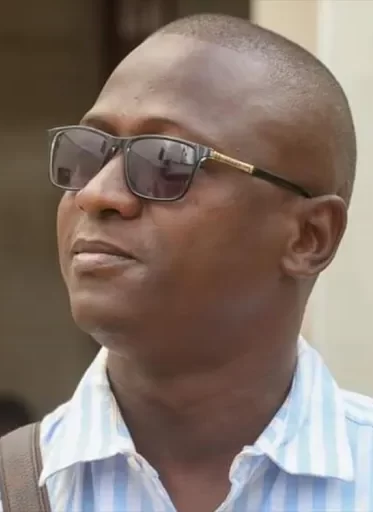 “Malian authorities should urgently investigate the disappearance of journalist Yeri Bocoum (pictured) and account for his whereabouts,” the Committee to Protect Journalists said Thursday. “The day before Bocoum disappeared, he covered a banned demonstration by the opposition political group ‘Synergie pour le Mali’ in Bamako, the capital. That evening, the journalist posted on the outlet’s Facebook page that ‘malicious individuals’ riding two motorcycles had tried to ‘intercept’ him while he was going home. . . .”
“Malian authorities should urgently investigate the disappearance of journalist Yeri Bocoum (pictured) and account for his whereabouts,” the Committee to Protect Journalists said Thursday. “The day before Bocoum disappeared, he covered a banned demonstration by the opposition political group ‘Synergie pour le Mali’ in Bamako, the capital. That evening, the journalist posted on the outlet’s Facebook page that ‘malicious individuals’ riding two motorcycles had tried to ‘intercept’ him while he was going home. . . .”
- “On May 16, four supporters of Ghana’s ruling New Patriotic Party (NPP) assaulted Dokurugu Abubakar Ndeeya, a reporter with the privately owned Zaa Multimedia,” the Committee to Protect Journalists reported Monday, “while he was filming outside a meeting between Vice-President Mahamudu Bawumia and party leaders in the northern Tamale region, the journalist told CPJ and media reports said.”
- “About a hundred dockworkers who illegally import Argentine food products into Bolivia threatened, with physical attacks, about five radio reporters who reported the destruction of a state office and the attempted seizure of a military regiment on Saturday, June 22, Bolivia’s National Press Association reported. ” ‘They threatened to shoot fireworks at my body and warned they would set my motorcycle on fire,’ the director and journalist of Radioemisora Líder, Gabriel Lozano, denounced in an interview with the Monitoring Unit of the National Press Association (ANP, for its acronym in Spanish).”
To subscribe at no cost, please send an email to journal-isms+subscribe@groups.io and say who you are.
Facebook users: “Like” “Richard Prince’s Journal-isms” on Facebook.
Follow Richard Prince on Twitter @princeeditor
Richard Prince’s Journal-isms originates from Washington. It began in print before most of us knew what the internet was, and it would like to be referred to as a “column.” Any views expressed in the column are those of the person or organization quoted and not those of any other entity. Send tips, comments and concerns to Richard Prince at journal-isms+owner@
View previous columns (after Feb. 13, 2016).
View previous columns (before Feb. 13, 2016)
- Diversity’s Greatest Hits, 2018 (Jan. 4, 2019)
- Book Notes: Is Taking a Knee Really All That? (Dec. 20, 2018)
- Book Notes: Challenging ’45’ and Proudly Telling the Story (Dec. 18, 2018)
- Book Notes: Get Down With the Legends! (Dec. 11, 2018)
- Journalist Richard Prince w/Joe Madison (Sirius XM, April 18, 2018) (podcast)
- Richard Prince (journalist) (Wikipedia entry)
- February 2018 Podcast: Richard “Dick” Prince on the need for newsroom diversity (Gabriel Greschler, Student Press Law Center, Feb. 26, 2018)
- An advocate for diversity in the media is still pressing for representation, (Courtland Milloy, Washington Post, Nov. 28, 2017)
- Morgan Global Journalism Review: Journal-isms Journeys On (Aug. 31, 2017)
- Journal-isms’ Richard Prince Wants Your Ideas (FishbowlDC, Feb. 26, 2016)
- Richard Prince with Charlayne Hunter-Gault, “PBS NewsHour,” “What stagnant diversity means for America’s newsrooms” (Dec. 15, 2015)
- Book Notes: Journalists Follow Their Passions
- Book Notes: Journalists Who Rocked Their World
- Book Notes: Hands Up! Read This!
- Book Notes: New Cosby Bio Looks Like a Best-Seller
- Journo-diversity advocate turns attention to Ezra Klein project (Erik Wemple, Washington Post, March 5, 2014)

